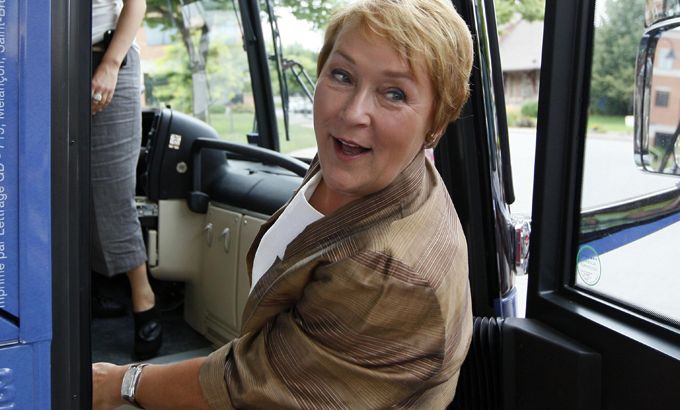
Reading Quebec’s ‘Maple Spring’ vote
As separatists return to power, we ask if PQ’s success had more to do with student anger than support for sovereignty.
After a decade on the political sidelines, the separatist Parti Quebecois (PQ) is back in power. In her victory speech, leader Pauline Marois stuck to her separatist agenda, saying: “The future of Quebec is to become its own country.”
|
“[This election] was mainly about whether Quebecers wanted to continue with what seemed to be a very tired, old government. And what was interesting about the results is not that the liberals lost but that they didn’t lose that badly …. I don’t think it was an election about separatism, about sovereignty.“ -Tom Walkom, a Toronto Star columnist |
But whether she will realise that dream in the near future is another matter.
The PQ fell short of the 63 seats it needs to form a majority government, forcing it to find coalition partners in Quebec’s National Assembly.
And the night of victory was marred by a fatal shooting after an apparently Anglophone protester broke into the celebration party and opened fire, killing one person.
After the result, the outgoing premier, the Liberal’s Jean Charest, stepped down from his party’s leadership.
Some believe Tuesday’s result was more of a rejection of his policies than an endorsement of the PQ.
The separatists’ victory comes after months of mass student protests across Quebec province over the Liberal Party’s hike in tuition fees.
Another source of anger was new legislation that restricted the right to protest, known as Law 78. Marois has already vowed to reverse both laws.
|
“It wasn’t about sovereignty; it was very much about the students though. I think everyone here would say that Jean Charest, the former premier, would not have called an election at this time if it had not been for our ‘Maple Spring’, the student uprising that lasted until the election. That very much heated things up here.“ – Francine Pelletier, a journalist and filmmaker |
There have also been shifting attitudes to sovereignty.
When a referendum was held in 1980, 40 per cent voted for sovereignty with 60 per cent voting against. But the 1995 referendum was very close, with the ‘yes’ campaign getting 49.42 per cent of the vote and the ‘no’ campaign 50.58 per cent. But after last year’s federal election a poll found 41 per cent would vote ‘yes’ and 59 per cent ‘no’.
With full sovereignty likely to be on the back burner for a while, it is thought Marois will instead pursue more devolution from the federal government in Ottawa and that may represent a challenge to Stephen Harper, Canada’s Conservative prime minister. His government has been accused of showing indifference to Quebec.
So what drove the Parti Quebecois to victory in Quebec?
To discuss this Inside Story Americas, with presenter Shihab Rattansi, are guests: Francine Pelletier, a journalist and filmmaker; Tom Walkom, a political columnist for the Toronto Star; and David Biette, the director of the Canada Institute from the Woodrow Wilson Center.
PARTI QUEBECOIS’ PLATFORM:
- Their overriding aim is to establish a sovereign Quebec through a referendum.
- To establish ‘Quebec citizenship’ where future immigrants would have to speak French.
- Adopt a new Charter of the French Language to make French the official language of work and education.
- This would be reinforced by a Quebec constitution which asserts the predominance of the French language and the secularity of public institutions.
- Away from the independence agenda, the party also promised to abolish university tuition fee increases.
- And also vowed to abolish a law restricting street demonstrations.
- Establishing a Quebec Bank of Economic Development offering financial assistance to business and access to government programmes.